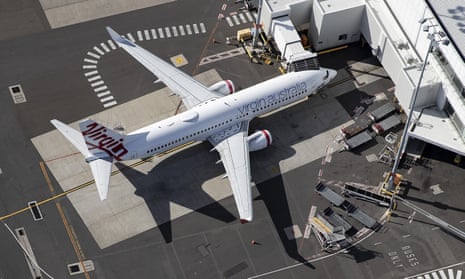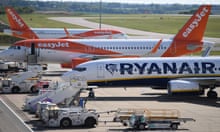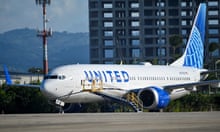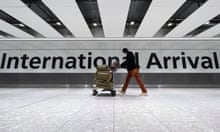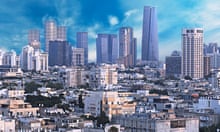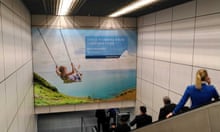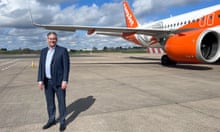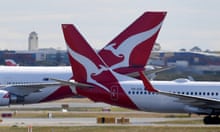International air fares are likely to keep climbing from their current highs over the next 10-15 years, with the cost of sustainable fuels expected to drive up ticket prices, according to the global airlines body Iata.
Extraordinary demand for travel since the Covid pandemic has led to steep fare rises on many routes, and Iata said consumers could expect to pay more as airlines increase the usage of scarce “greener” jet fuels in response to government mandates to cut aviation’s carbon emissions.
Willie Walsh, the director general of Iata and former chief executive of British Airways, said: “We’re going to require more and more SAF [sustainable aviation fuel], and that means more and more expense.”
While Walsh said that some economists believed sustainable fuels could eventually become cheaper than kerosene, he added: “I see certainty in the next 10-15 years that we’re looking at a significant increase in fuel costs. Unless there’s some compensating reduction in other costs – and I don’t see that – then people have to expect that there will be an increase in in average fares as we go forward.”
He added: “It will mean higher fares, because sustainable aviation fuel is more expensive than your traditional jet kerosene. And as we transition to net zero, it is going to cost some money.”
Airline costs have been driven up significantly as oil prices soared after Russia’s invasion of Ukraine, as well as higher labour costs. Walsh also pointed to constrained capacity due to a lack of spare parts, which have left some airlines unable to operate their full fleets.
Despite the much higher fares passengers are having to pay on many routes this summer, Iata said its analysis showed fares worldwide were still around 2019 levels in real terms at the start of 2023, having lagged behind inflation over the course of the pandemic.
Last year, Ryanair said the era of ultra-cheap flying was over. The coming impact of SAFs was suggested in a recent update of the UK’s sustainable aviation roadmap to net zero by 2050, which relies largely on offsetting and SAFs and replacing fleets with more fuel-efficient aircraft to slash net emissions.
It projected that fewer people would fly in coming decades as a result of being priced out – a “demand reduction impact” that would account for about 14% of the required cuts to hit the target.
However, airlines are reporting rising custom despite higher prices.
The president of Emirates airline, Sir Tim Clark, said the “eye-opening” demand for air travel, even in premium cabins at high fares, defied economic wisdom. He added: “In winter last year, for every seat we sold another five people wanted it … We could have put it out to auction if we’d wanted to.
after newsletter promotion
“People who used to fly at the old fare levels are piling in at the new fare levels. It just doesn’t seem to make sense in the way we used to understand it. All I know is that we’re moving – so we’ll take it.”
Clark, whose airline was a notable opponent of the capacity cuts imposed at London Heathrow last summer, warned the British government it needed to do more to support international aviation.
Clark said: “The UK needs all the help it can get. If it’s going to work with Brexit, and you’ve said yah-boo Europe, it’s not where we need to be, we need to be in China, India, Australia, America, then you’ve got to move people and goods to those places. So [airline capacity] is vital. If that is lost on the government of the UK, they will pay the price.”
